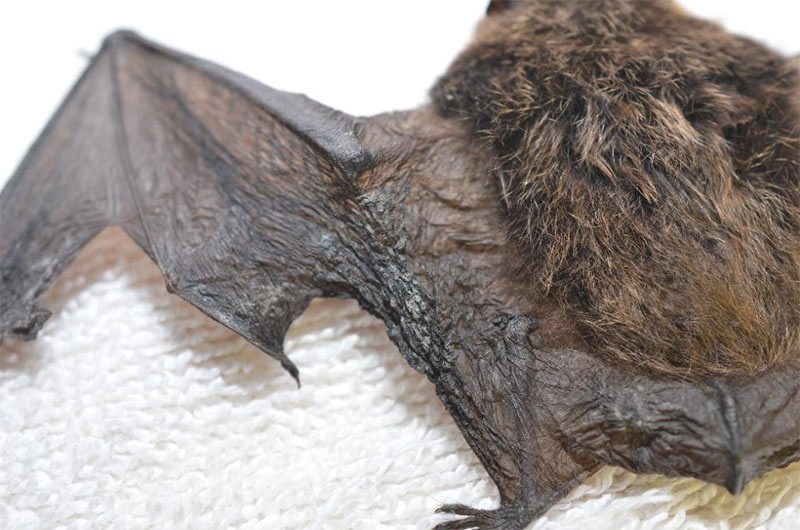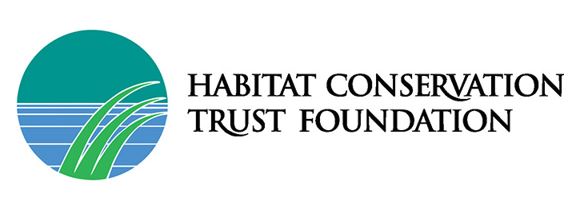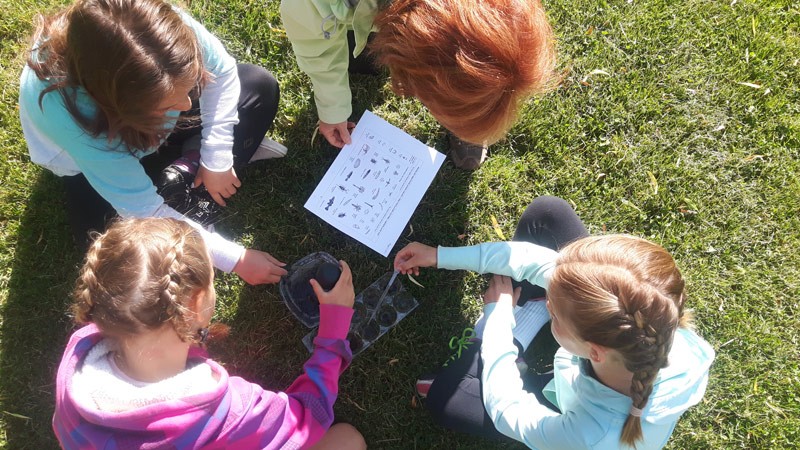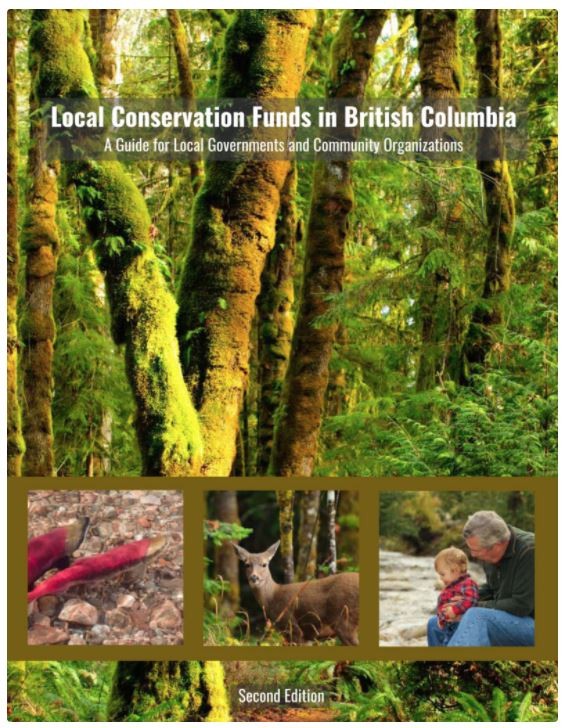Last week, we welcomed Courtney Sieben to the HCTF team as our new Conservation Grant Specialist. Courtney recently moved to Victoria from Calgary, where she worked as an Environmental Analyst on oil and gas infrastructure projects. Courtney has a BSc with a biological sciences major/mathematical sciences minor from the University of Alberta and an MSc in Sustainable Energy Development (SEDV) from the University of Calgary. As Conservation Grant Specialist, Courtney will be facilitating HCTF’s application and review process. She has inherited this role from long-time HCTF staff member Jane Algard, whose involvement with the Foundation stretches back to 1983. Courtney will be working with Jane until the end of this month when she begins her well-deserved retirement. On behalf of the Board and staff at HCTF, a big welcome to Courtney, and a huge thank you to Jane for her many contributions to HCTF over the past four decades.
Category: News
HCTF Welcomes Al Gorley and Greg Anderson to the BOD
The Habitat Conservation Trust Foundation (HCTF) would like to congratulate Al Gorley and Greg Anderson on their election to the HCTF Board of Directors. Both Greg and Al have extensive experience in the BC natural resources sector, with experience in all regions of BC.
Al Gorley is a Professional Forester and President of Triangle Resources Incorporated. Prior to becoming a consultant, Al held a number of positions with the BC Forest Service, including District Manager at Houston, Regional Manager at Prince George, and Assistant Deputy Minister. He was also the Vice President and Chief Operation Officer of Forest Renewal BC. Al served on the Association of BC Forest Professionals Council for four years, including a term as President in 1992. He is the past president of the McGregor Model Forest Association and has played an active role in both the Canadian and International Model Forest Network. Al has been a member of the province’s Environmental Appeal Board and Forest Appeals Commission since 2004. In 2016, Al authored a report commissioned by the BC government making recommendations to restore moose populations in BC.
Greg Anderson recently retired as Executive Director of the Forest Enhancement Society of BC. This was Greg’s second retirement: in 2011, he retired following a lengthy career with the BC Public Service. Highlights include serving as the Province’s first Ecosystem Restoration Manager; Greg was nominated for the British Columbia Forests Excellence Award in Forest Management in both 2009 and 2010 for his leadership in this role. Greg also initiated and led BC’s first “Rocky Mountain Trench Ecosystem Restoration” program from 1996 -2006. He was a founding member and inaugural Chair of the British Columbia Prescribed Fire Council. Greg is currently Chair of the Columbia Basin Trust’s Environmental Advisory Committee and a technical advisor for their Basin Ecosystems Program Strategic Plan. He also sits on the Columbia Headwaters Community Forest’s Board of Directors and is a Scientific Advisor and project reviewer for the Columbia Valley Local Conservation Fund. Greg is also serving a second term as a Councillor for the District of Invermere and is a former School Board Trustee for Rocky Mountain School District #6.
Both Al and Greg’s terms on the HCTF Board will commence in April 2018.
Public Help Needed to Monitor Spread of Deadly Bat Disease

BC bats may be threatened by disease, and researchers are asking for the public’s help in monitoring for the disease. White Nose Syndrome (WNS), a fungal disease responsible for the death of millions of bats in eastern North America, has moved to the west coast. Confirmed in Washington State in both 2016 and 2017, the presence of the fungus is very worrisome for the health of bat populations in British Columbia, with near 100% mortality for some species of bats exposed to the fungus. Although devastating for bats, WNS does not affect humans.
The BC Community Bat Program in collaboration with the BC Government is requesting the public’s help in monitoring the spread of this disease. “We knew this deadly fungus was moving westward across North America,” says Mandy Kellner, Coordinator of the BC Community Bat Program, “but we thought we had many years to prepare.” Instead, the disease has suddenly appeared in the west, spurring BC researchers into action. Because so little is known about where BC bats hibernate, researchers want to hear from anyone who sees a bat flying during winter, which can be an early sign of the disease. Another sign of the presence of WNS is the appearance of dead bats as they succumb to the effects of WNS.
“We are encouraging the public to report dead bats or any sightings of winter bat activity to the Community Bat Program’s toll-free phone number, website, or email. Bat carcasses will be submitted for testing for White Nose Syndrome and would provide the earliest indication of the presence of the disease in BC,” says Kellner. Reports of winter bat activity will help focus research, monitoring and protection efforts.
If you find a dead bat, please report it to the Community Bat Program (1-855-922-2287 ext 24 or info@bcbats.ca) as soon as possible. Never touch a dead bat with your bare hands. Please note that if you or your pet has been in direct contact with the bat, you will need further information regarding the risk of rabies to you and your pet.
Currently, there are no treatments for White Nose Syndrome. However, mitigating other threats to bat populations and preserving and restoring bat habitat may provide bat populations with the resilience to rebound.
Funded by the Habitat Conservation Trust Foundation, the Province of BC, and the Habitat Stewardship Program, the BC Community Bat Program works with the government and others on public outreach activities, public reports of roosting bats in buildings, and our citizen-science bat monitoring program.
To contact Mandy Kellner, Provincial Coordinator the BC Community Bat Program:
Email info@bcbats.ca
Call 250-837-1376 or 1-855-922-2287 ext. 24
For more information, visit www.bcbats.ca
Expanded HCTF and FESBC Partnership


Last September, the Habitat Conservation Trust Foundation (HCTF) announced that the Forest Enhancement Society of BC (FESBC) had committed up to $1 million for wildlife conservation projects using HCTF’s grant application process. Following this announcement, HCTF received a record number of wildlife funding applications, requesting double the amount that has historically been available.
We are therefore thrilled to announce that FESBC has decided to double their investment for 2018-19 and commit up to $2 million dollars to wildlife conservation projects that meet both agencies’ wildlife enhancement objectives.
Applications submitted in November 2017 are currently being reviewed by HCTF technical committees to identify those that are technically sound, address important wildlife conservation issues, and have a high likelihood of success. A list of projects meeting these criteria will be provided to FESBC, who will then identify the projects they wish to invest in. Grants will be administered by HCTF, who will notify successful applicants by March of 2018.
“FESBC has chosen to invest through HCTF because of the rigorous way in which the organization evaluates funding proposals,” said Steve Kozuki, Executive Director of FESBC. “HCTF is unrivalled in their use of science to make decisions about which projects will have the greatest conservation impact and the highest likelihood of success. FESBC is delighted to collaborate with HCTF for the benefit of wildlife and people who rely on wildlife.”
“Both HCTF and FESBC have mandates to improve wildlife habitat in the province,” said Brian Springinotic, HCTF CEO. “In a time that wildlife habitat and populations are under increasing pressures, this partnership extends the reach of both organizations and reduces the administrative burden on dozens of project proponents. We are continuously working to improve and streamline our application and reporting processes for the benefit of our grantees and partners wishing to invest in conservation in BC.”
For more information, please contact Shannon West at shannon.west@hctf.ca or call 250 940 9789.
About FESBC: www.fesbc.ca/about-the-fesbc.html
About HCTF www.hctf.ca/who-we-are/about-hctf
Projects co-funded by HCTF and FESBC are described on the 2017-18 approved project list.
One Month to Go til Go Grant Deadline

Teachers – it’s time to start planning spring field trips to get your students outside, learning in nature. HCTF can help with GO Grants. BC educators can apply for up to $600/class or $3500/school to pay for bus transportation, project materials, and leader/program fees for outdoor environmental learning experiences. Applications are due on February 15, 2018 for field trips taking place April 1st to June 30th, 2018. Full grant criteria and a link to our online application system is available here. For more information, contact HCTF Education at 250-940-9786 or email gogrants@hctf.ca
Local Conservation Funds in British Columbia
 An updated version of “Local Conservation Funds in British Columbia” has been published an is available here.
An updated version of “Local Conservation Funds in British Columbia” has been published an is available here.
The guide outlines key steps for local governments and NGOs looking to establish a dedicated source of funding for conservation in their communities. It includes case studies of regional districts that have been successful in establishing local conservation funds, including the Regional District of East Kootenay, the Regional District of Okanagan-Similkameen, and the Regional District of Central Okanagan. HCTF is proud to support the creation of this guide through grants to the South Okanagan Similkameen Conservation Program.





